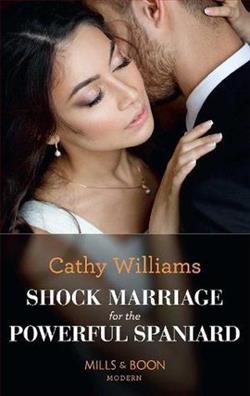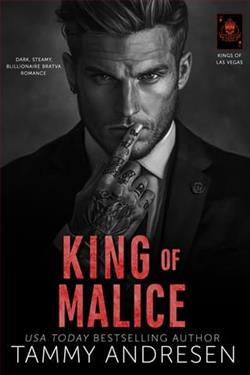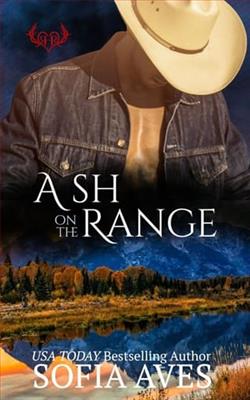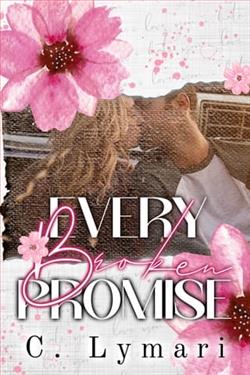Page 51 of Warrior Queen
I stayed seated, with only Ystradwel and Bishop Exuperius for company. Down in the hall, a few women remained, exchanging silent, fearful glances. They must be used to their men going off to fight by now– but also used to not all of them coming home again. Just as I was. One of them bent over the body of the young messenger, shaking her head in resignation.
Ystradwel heaved a sigh. “And so it begins,” she said, weariness edging her voice. “We women know our place– and that’s waiting. Whatever you accomplished at Vindolanda, Gwen, waiting is our lot, while our husbands, sons and brothers march into danger.”
Chapter Seventeen
With all themen, young and old, departed from the hall, we women dispersed to our sleeping quarters. Before entering my chamber, I stood for a moment in the quiet courtyard, breathing in the comforting scents of lavender, sage and rosemary. From outside the walls of the palace, the sounds of the nighttime city wafted to me– a dog barking, a few shouts, the slamming of a door or two. The sounds of peace.
Only it wasn’t peaceful at all. Not really. A current of tension sizzled through the night air, making the little hairs along my arms prickle upright. The atmosphere felt so thick, I had to deliberately push the air in and out of my lungs.
Later, lying in bed, hot and uncomfortable in just my undershirt, I waited for Arthur to come, but he didn’t. Part of me hadn’t expected him to and accepted that where battle was concerned, I had to come second. But the selfish part of me longed to have him beside me, warm and alive and unharmed, holding me, my head on his chest with his reassuring heartbeat loud in my ear.
I must have slept eventually, because I woke to a watery early morning light filtering through the window. My head ached, and my eyes felt gummy from lack of sleep. I rubbed the back of my hand across them, blinking in the comparative brightness, and sat up.
Silence. No birdsong. No dogs barking. No voices. No sounds of battle, however distant. Foreboding crept up my back, and my skin prickled. Nothing could have been more ominous than that silence.
I jumped out of bed and dragged on my tunic and braccae as fast as I could, topping them with my mail shirt and pausing only to slip my feet into my boots and buckle my sword belt around my waist. Outside, rain fell in a soft mist, bestowing a dark shine on the patches of exposed stonework on the palace walls. My soft boots made next to no noise on the wet flagstones as I crossed the courtyard to the corridor then threaded my way to the main palace.
No guards on doors. No servants to be seen. My heart began to hammer, and sweat sprang out down my back, not just from wearing a mail shirt in the humid summer heat.
I ran across the center of the main courtyard, past the fountain, where the cool water splashed musically as though no danger threatened, and the thin rain had bedewed the bushes so they sparkled with tiny jewels. Two guards stood alone in the atrium, gray haired, wrinkled, watching over the main doors.
“Where is everyone?” I asked, breathless from nerves as well as running.
The guards, old but not lax, saluted me. “On the walls, milady. The Saxon army’s fast approaching. Every man’s been called to arms. Only us left here to guard the palace.”
The patter of running footsteps sounded behind me. The two little boys, Bran and Cyngal, galloped into the atrium with Ystradwel in hot pursuit, a much younger woman following. Both boys carried their wooden swords and shields.
“Open the gates for us, Boden,” Bran called out. “We’re going to join the battle.”
“We’re warriors!” piped up Cyngal, waving his sword about. “Grandfather needs ev’ry warrior he c’n get.”
Ystradwel and the younger woman came puffing into the atrium, as damp as the children. “Boys,” the girl called, her voice betraying her anxiety. “I told you already, you can’t go.”
“But we’re warriors with our own swords,” protested Bran. “Grandfather said– we heard him. He needs ev’ry warrior.” He stamped his small, booted foot. “An’ that’s us.”
Ystradwel got her breath back. “I’m sorry,” she said, half to me, half to the guards and probably half to the two little boys, even though that made three halves. “They got away from us when we weren’t looking.” She managed a strained smile. “Gwen, this is my grandson’s wife, Fianna.” She paused. “Fianna, Queen Guinevere.”
Fianna was a slight young woman, scarcely more than a girl, whose sandy-brown hair tumbled down her back in unruly curls, as though perhaps she’d been dragged early from her bed to cope with this crisis in childcare. She bobbed a quick bow. “Milady. I’m sorry if my boys have disturbed you.”
“Call me Gwen,” I said. Not the time to insist on protocol. “And I don’t mind at all. I have a boy myself, about Cyngal’s age, at home in Din Cadan.” I couldn’t’t help but smile as an image of Amhar’s face popped into my head, and the thought that he, too, would have been there offering his help if danger threatened his home.
“Come now, boys,” Fianna said. “Back to the nursery.”
They set up a wailing protest. “We want to fight.”
“We’re soldiers now.”
“We’ve bin practicin’.”
The guard, Boden, squatted awkwardly down on his haunches to face the boys. “I can see you have indeed been practicing,” he said, his voice gravelly with age. “But your great-grandfather wants you to guard your mother. In her rooms. That’s the job he did tell me he wanted you to do, just afore he left for the walls. He did say as you was the bravest of the boys in the palace, and you’d know what to do if danger threatened.”
The wailing ceased. The tiny warriors exchanged glances. “We do…” Bran’s voice wavered as though he suspected he might be being conned in some way. “But we oughta be helpin’, really.”
Fianna clasped her hands, meeting Ystradwel’s eyes over their heads. “You can’t leave me on my own. I’ll be too frightened. I need my personal guards.”
Bran glanced at his little brother.
Cyngal raised his eyebrows and gave a shrug.















